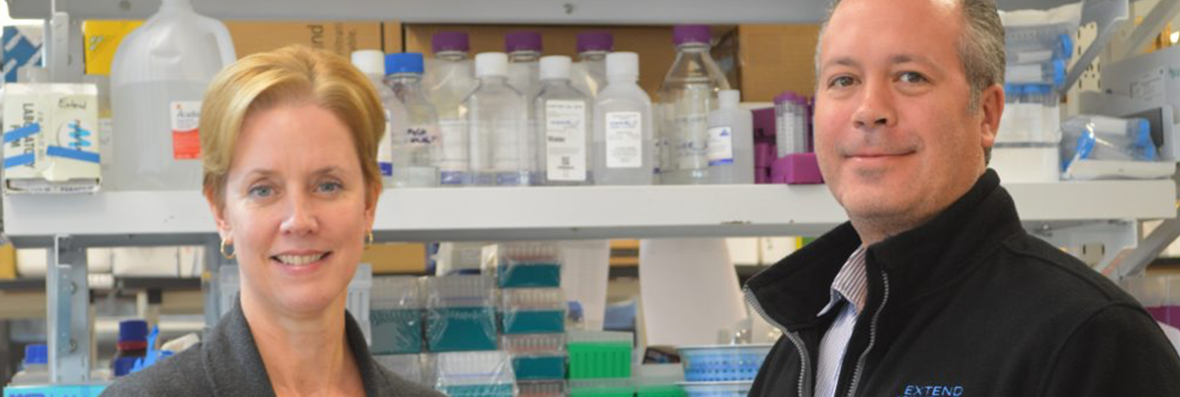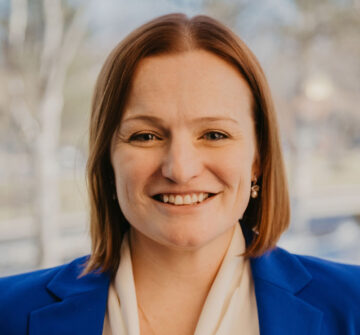Extend Biosciences, Inc. is an emerging biotechnology company developing a novel drug delivery platform. It is aiming to crack the code on the therapeutic value of peptides and proteins utilizing proprietary platform technology with the potential to revolutionize drug delivery and provide patients a better quality of life.
The Newton-based company was awarded funding through the MLSC’s Milestone Achievement Program (MAP) in 2015. For the company’s Co-Founders Tarik Soliman, Ph.D. and Laura Hales, Ph.D., this funding solidified a path for Extend Biosciences and its future prospects.
“It was the right place, right time for us,” noted Dr. Hales, who serves as the Chief Business Officer for Extend Biosciences.
The MAP program enabled Extend Biosciences to successfully complete testing to examine the properties of new carrier molecules. This testing proved vital for the company’s patent portfolio and eventual trademark registration being issued in June 2018 for their platform technology, D-VITylation. Additionally, Extend Biosciences is predominantly SBIR funded, and given that those funds are not allowed to be spent toward intellectual property, MAP funding was critical in filling this gap.
At a broader level, MAP enabled Extend Biosciences to be more readily recognized in the larger scientific community. Their team believes Massachusetts is the right place for life sciences companies to thrive.
“Massachusetts as an ecosystem, as a life sciences culture, has been terrific to us,” said Dr. Soliman, who serves as Extend Biosciences’ CEO and President. “The environment here makes it so easy to collaborate. It could be as simple as grabbing a cup of coffee—anybody will grab a coffee with you—or you might just bump into someone in the hall at a shared workplace and that could be the beginning of a meaningful, impactful industry partnership.”
Dr. Soliman believes Massachusetts is making it easier for companies to get started.
That’s the biggest difference between Massachusetts and other states. This approach has a big impact for those small companies which deserve an opportunity to try out their ideas.
The MLSC’s MAP initiative aims to fill a gap within the existing funding environment to enable early stage companies to attract additional follow on funding.
“We’re not on a very traditional path for a biotech company,” noted Dr. Hales. “We’re a data-driven, homegrown idea. So it makes a big difference when funding and resources are made available through programs that recognize that all companies, especially small ones, are at different stages and levels of need.”
That is a cornerstone of MAP in that the MLSC recognizes that many innovative companies are a milestone away from reaching an inflection point to further the success of the technology, and advance the company overall.
This year’s highly competitive MAP will provide awards of up to $200,000 in non-dilutive grant funding to Massachusetts companies who propose the completion of a technical milestone, which has been informed by investors and/or board members. Examples of fundable milestones may include: prototype development, technology assessments, manufacturing process, pre-clinical work, clinical trials, market analysis, competitive assessments, and regulatory strategy design.



